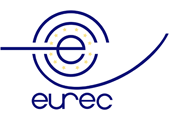menu
- Home
- National Information
- EC-Activities
- EUREC-Activities
- Legislation
- Training Materials
- Literature
- Events
- Newsletter
supported by:

Eurecnet - Training material details
Training material details
Grundriß der medizinischen Ethik [Compendium of medical ethics]
Author(s): Irrgang, Bernhard
Document type: Book
Year: 1995
Pages: 295
Source: Publishing house: Ernst Reinhardt Verlag, UTB
Language(s): German
Classification
National background: GermanyCategory: EU Training Material for Research Ethics
Subject areas: Embryo research, stem cell research; Human experimentation
Focus: Sub-focus: medical ethics; Indicate areas of research dealt with: human experimentation, embryo and stem cell research
Content: Ethical theories; Normative reflections
Issues touched: Autonomy, respect, informed consent, subjects unable to consent, role of representatives Beneficence, non-maleficence, risk for the subject Justice, benefits/burdens, research without benefit for the subject, placebos/standard therapy
Audience: General/not specified
Classification remarks: Against the background of "classical" ethical theories and modern approaches the author develops medical ethics as problem-oriented professional ethics. Issues of research ethics are addressed rather shortly (human experimentation, pp. 155-164, embryo research, pp. 221-231).
Estimation
Theoretical quality remarks: Five different types of ethical theories are presented as well as a detailed introduction into medical ethics.Didactical quality: Didactically prepared material
Didactical quality remarks: Chapter 1 and 2 deal with more general aspects of ethical reflection and classical theories, chapters 3-6 address special problems of medical ethics (4.3 human experimentation, 5.3 embryo research) At the end of each chapter there is a set of questions referring to the content. A glossary at the end of the book explains the technical terms. No answers are provided, neither are case studies presented to demonstrate the more abstract considerations.
Overall estimation: worth considering
Estimation remarks: Research ethics in particular is only a minor issue in the book. Due to this, other important issues are missing. The overview of types of ethical theory may still be valuable for students.
